| |
|

Scholars-in-residence
program
Presentations are free; kosher meals moderately priced
● Rabbi
Motti Berger, founder of "Jews for Judaism," Nov. 16-17
● Rabbi
Yakov Horowitz, founder, Project Y.E.S. (Youth Enrichment Services)
for
Agudath Israel, Jan. 4-5
● Rabbi Ari
Kahn, director, Foreign Student Programs,
Bar Ilan University, Israel, Feb.
22-23
Call us for details at (619)
287-9890
|

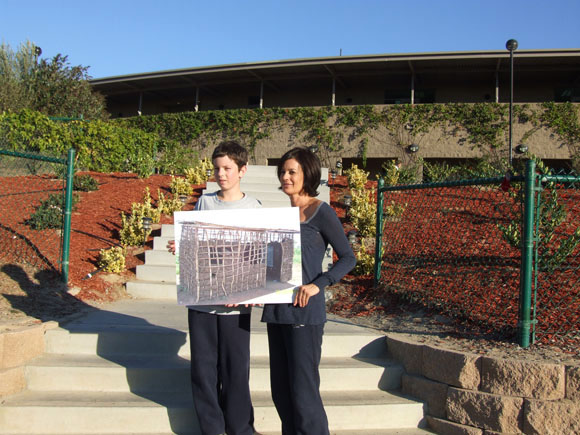
TWO SCHOOLS—Beau Bressler and mother, author Debbie Ford, hold a photograph
of a deteriorating one-room school in Kikoiiro, Uganda, for which he pledged his bar mitzvah money to help replace. Behind them is a portion of the sprawling San Diego Jewish Academy, where Beau is an eighth-grader
THE JEWISH CITIZEN
Beau's Geste: Student gives up bar mitzvah money so others kids can have a school
By Donald H. Harrison
 SAN DIEGO—Vivian Glyck and Debbie Ford both are successful authors whose books deal with self-help and spiritual betterment. Along with Chabad Rabbi Baruch Shalom Ezagui they inspired Ford’s son Beau Bressler to do something very unusual for a 13-year-old: to pledge all the money that people might give him as bar mitzvah presents to help build a school in a small village in Uganda. SAN DIEGO—Vivian Glyck and Debbie Ford both are successful authors whose books deal with self-help and spiritual betterment. Along with Chabad Rabbi Baruch Shalom Ezagui they inspired Ford’s son Beau Bressler to do something very unusual for a 13-year-old: to pledge all the money that people might give him as bar mitzvah presents to help build a school in a small village in Uganda.
Beau’s determination to not only become a bar mitzvah (son of the commandment) but also to do a mitzvah (popularly, a good deed) has, at this writing, two weeks after his bar mitzvah, resulted in $80,000 being raised—enough to build not one, but two schools. And there are indications that the idea is catching on with other youngsters who want their celebrations—be they bar mitzvahs or regular birthday parties—to mean more than simply accumulating gifts.
Glyck has one son, Zakary, now 5, but sought unsuccessfully to have another child. Twice she miscarried. “I saw a baby’s heart beat, and two weeks later there was no heart beat,” Glyck recalled. “I saw our mortality.” After the second miscarriage, she recalled thinking, “Okay, God, what am I supposed to be doing? Having another child doesn’t seem to be the path You have in mind for me, but I am so in love with children; I know I want more in my life.”
She attended a presentation on the work the Agape Church does in Senegal and decided that she would like to travel with a church group there, the only white woman among a delegation of African-Americans. She learned in great detail how the AIDS pandemic is devastating Africa, later commenting: “My parents are both Holocaust survivors; mom lost 22 relatives. I grew up with a tremendous consciousness of what was lost because people didn’t respond because it wasn’t in their front yard. It’s a big parallel for me—that’s also why Jews are so interested in (stopping the genocide) in Darfur.”
She decided that the job for which she was intended was to help save the lives of other people’s children.
Several months later, after the launch of her book (The Tao of Poop: Keeing Your Sanity (and Your Soul) While Raising a Baby, she traveled to Lewero, a city with a 50-bed hospital serving 600,000 people via 12 clinics in outlying precincts. The HIV/AIDS rate in this area of Uganda is somewhere between 15 and 30 percent, Glyck said.
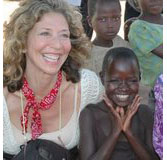 Traveling with Sister Ernestine to the village of Kikoiiro (pronounced Chico-Eero), situated alongside a lake, Glyck visited the clinic, saw a dilapidated one-room school house, and while talking to an adult outside a mud hut, spotted a young girl intently watching the proceedings while holding her baby brother. Through a Luganda interpreter, Glyck asked the girl, whose name was Nyangoma Recha, to smile, and when Nyangoma complied, the smile beamed its way into Glyck’s heart. “I couldn’t forget her,” said Glyck. “I asked Sister Ernestine what it would cost to send her to school—transportation, tuition, boarding—and Ernestine said ‘do it, it will Traveling with Sister Ernestine to the village of Kikoiiro (pronounced Chico-Eero), situated alongside a lake, Glyck visited the clinic, saw a dilapidated one-room school house, and while talking to an adult outside a mud hut, spotted a young girl intently watching the proceedings while holding her baby brother. Through a Luganda interpreter, Glyck asked the girl, whose name was Nyangoma Recha, to smile, and when Nyangoma complied, the smile beamed its way into Glyck’s heart. “I couldn’t forget her,” said Glyck. “I asked Sister Ernestine what it would cost to send her to school—transportation, tuition, boarding—and Ernestine said ‘do it, it will
Glyck and Nyangoma
change her life. You never know what else it might lead to.'"
So Glyck went back to the village and asked Nyangoma’s mother if she would like her daughter to go to a boarding school about three hours from her village where she would learn to speak English as well as a full curriculum of other subjects. Although it was outside her experience, the mother agreed.
With only rudimentary education available in Kikoiiro, Glyck found herself wondering how different life could be for Nyangoma’s playmates and other children in the village if there were a fully-equipped school. Meanwhile, she helped to found the “Just Like My Child Foundation,” to raise money for hospitals, for HIV pediatric testing, for other forms of health care, and for education.
The scene shifted to San Diego, where Arielle Ford, told her sister, Debbie Ford, about her decision to serve on the board of the Just Like My Child Foundation. Arielle is publicist for Deepak Chopra, the prolific San Diego-based writer on the nexus between spiritual and medical health. Arielle also told Debbie, author of the one-time Number One New York Times best-seller The Shadow Process, about Glyck’s plan for the Kikoirro school. A luncheon was arranged to discuss the project.
“I said I wanted to have 25 girls in boarding school (as an immediate goal) but really I wanted to build a school in the village,” Glyck recalled. “I don’t quite remember the moment that Debbie really got inspired, but she said perhaps Beau could raise the money for that with his bar mitzvah.”
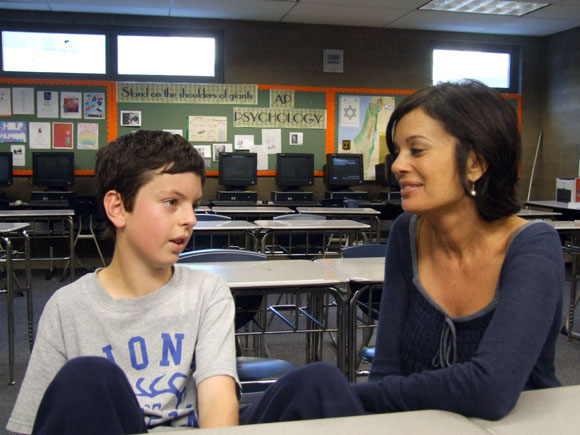
Beau Bressler and mother, Debbie Ford
Beau, interviewed earlier this week at San Diego Jewish Academy, where he is an eighth grader, said at first the idea of donating his bar mitzvah proceeds didn't appeal to him. “I didn’t want to give up all my money; no one else was giving up all their money, so why should I?” Beau recalled thinking. However, “I kind of thought well, what would I get with the money? And I couldn’t really think of anything.”
Debbie Ford gave a great deal of the credit for Beau’s decision to Rabbi Ezagui of Chabad of La Jolla Shores, whom she described as “a great Chabad rabbi, off the charts. He was talking about how a mitzvah is a stretch. If you want to walk an old lady across the street, and you walk her, it is not really a mitzvah. But if you don’t want to walk her across the street, but nevertheless you do so, then that’s a mitzvah. Beau didn’t want to give all the money, but he decided to do so, so that’s a mitzvah. He didn’t want to make a video (which ran on Debbie Ford’s website to promote the project), but he did so, so that’s a mitzvah, and he didn’t want to talk to you (a journalist unknown to him), and this is a mitzvah. He is stretching himself—and now other kids and parents also want to join in.”
(I had been told by fellow San Diego Jewish Academy faculty members that Beau is a wonderful young man, but very shy, so I was not surprised by his reticence to do an interview.)
Rabbi Ezagui downplayed his own role in Beau’s saga. “They were from the get-go interested in helping the world,” he said. “I had the honor to participate. Beau is the one who deserves the credit.”
Beau studied the life of the Patriarch Abraham as part of his preparation for his bar mitzvah, Ezagui said. Among his study portions was Vayera, in which Abraham is circumcised, thereby making a commitment beyond his understanding.
In making his commitment to help build the school, Beau proved that “you don’t have to be wealthy, an adult, or a big macher (an important person) to make difference, you just have to do it,” commented the rabbi.
Beau’s appreciation of the value of his project has deepened: “Their school will not just be one room, and it will save a lot of lives, because more people will be able to go and they will learn important things,” he said proudly. “They will learn survival skills and basic reading, languages and stuff important to them.”
He added that another “important thing is how people are joining in, encouraging other people.”
His mother amplified: “We got two contributions of $10,000 from the same family. They live in Florida, and they are not Jewish, but everyone loves the idea of a mitzvah project. The father gave $10,000, the mother gave $10,000 and the daughter gave $400—she emptied out her bank account. And now she is doing her 13th birthday party and giving all the gifts to the school. Another woman in New York gave $5,000, and their whole school is doing a project.”
Beau and his mother plan to travel to Uganda probably in July to visit the village. The expectation is that by then construction will be underway on at least one seven-room school house, to be built by local laborers.
 Although Beau donated his bar mitzvah money, no one should get the feeling that the young man feels in the least bit deprived. His bar mitzvah reception at the Hilton Hotel overlooking the world- famous, Pacific Ocean-side Torrey Pines Golf Course was a Uganda-themed affair, with images of his favorite animal, a giraffe, among the decorations. And following the trip to Kikoiiro, the family plans to go on safari. Although Beau donated his bar mitzvah money, no one should get the feeling that the young man feels in the least bit deprived. His bar mitzvah reception at the Hilton Hotel overlooking the world- famous, Pacific Ocean-side Torrey Pines Golf Course was a Uganda-themed affair, with images of his favorite animal, a giraffe, among the decorations. And following the trip to Kikoiiro, the family plans to go on safari.
There was also an unexpected benefit, Beau said. Some families who donated to the Foundation sent two checks: larger ones to help build the school, and smaller ones made out to him, which they insisted that he keep, because the donors didn’t want him to receive nothing.
So how much did he receive?
“About $1,200,” he said.
Beau’s bonus was all well and good, Rabbi Ezagui commented later, however “the reward of his mitzvah was the mitzvah itself.”
Harrison is editor and publisher of San Diego Jewish World

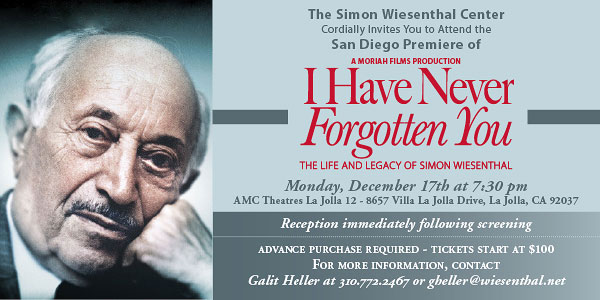

LETTER FROM JERUSALEM
Jewish shtetl mentality is understandable
but dangers to Jews often exaggerated
By Ira Sharkansky
 JERUSALEM— It takes a while for best sellers to reach my provincial corner of Jerusalem, but some of them have a message worth pondering years later. JERUSALEM— It takes a while for best sellers to reach my provincial corner of Jerusalem, but some of them have a message worth pondering years later.
Philip Roth's novel The Plot Against America (2004) tells a story of President Charles A. Lindbergh, who defeated Franklin D. Roosevelt in the election of 1940, and proceeded to ally the United States with Nazi Germany. As a result of secret agreements with the Nazis, the Lindbergh administration began a policy of isolating Jews. Philip Roth is a 9-year-old son of a lower middle class family in Newark, who tells the impact of this on his parents, and his fears. The story builds toward a pogrom, and then ends with the report that Franklin Roosevelt wins back the White House, and the United States returns to the real history of World War II. The book resembles a mystery novel with a well-crafted plot, but an ending that is not up to the challenge.
The Plot is not so disturbing in its portrayal of a historical fiction, as in what it reveals about Philip Roth the author. It suggests that the man who spent all those books telling funny stories about Jews and sex is afraid. His collection of prizes, and his position as a leading man of letters is not enough. Not too far beneath the surface is the little Jewish boy from Newark, who worries about the goyim.
Alan Dershowitz is another American Jew whose fame has not dulled his anxiety. I count myself among his admirers for his articulate defense of Israel against the know-nothings, Jewish and otherwise. Yet I also wonder, especially after reading Chutzpah (1993), about the fragile nature of the most successful Jewish community in the most successful of Western democracies.
A generation ago the most distinguished American colleges used quotas to limit the number of Jews they accepted as students, and their Jewish graduates could not aspire to serious positions in major banks or industries. Now many of those colleges, banks, and industries have had Jewish presidents.
Roth and Dershowitz are of the generation that learned about the Holocaust at an impressionable age. They matured when Israel was becoming the favorite target of self-styled civil rights activists while other regimes were guilty of much worse, and without the justifications of national defense that apply to Israel's case.
These are good reasons to worry about the shaky nature of Jewish success. Things looked pretty good for the Jews in Weimar Germany, and we all know how that ended.
A Jew who knows history can never say that it cannot happen again.
Nevertheless, a Jew can also see indications to moderate the fear. Just this week the President of the Ukraine came to Israel, talked about an end to anti-Semitism, and was photographed, in a skull cap, kissing the stones of the Western Wall.
Jewish skeptics will wait and see about this sign of friendship from one of the places that aided the Holocaust, but there are other reasons to feel secure. Israel's 60 year history has had its tough moments, but not as tough as its adversaries. Israel is a serious player in international politics. It is not large enough or rich enough to be dominant, but it is strong enough to assure respect for its interests. The country is a major producer of the gadgets and programs at the heart of advanced technology, and appears among the World Bank's list of the world's richest countries.
For the most part, Israel's leaders have used their resources carefully, and avoided adventures that are costly without end. The hyperbole of Hamas and Hizbollah does not sound right alongside the rubble.
Currently there is a majority in Israel's Knesset that is doing its best to assure that a government cannot make the kind of concessions that may tempt the Palestinians toward peace. By their reasoning, Arab neighborhoods have become part of Jerusalem's holiness to the Jews, and cannot be given up. One wonders if these Israelis are serious, or are simply positioning themselves against Palestinian madness that cannot abandon the refugees' right of return, or recognize Israel as a "Jewish state."
The Jews have left the shtetl, but the shtetl does not let us enjoy success.
Sharkansky is professor emeritus of political science at Hebrew University
< BACK TO TOP



PEOPLE OF THE BOOKS
The saga of a Muslim woman seeking a modern life that her society would deny
Infidel by Ayaan Hirsi Ali. Free Press, New York, 2007, 355 pages.
By David Strom
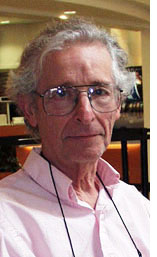 SAN DIEGO—Where did Ayaan Hirsi Ali learn that she had a choice when it came to marriage? She didn’t learn it through her culture-she is a Muslim Somali woman where submission to the will of her father was very important. Whomever he decided would make a good husband for her was the one she would marry. Arranged marriages were/are common in the Muslim Somali community. She didn’t learn it at school. Her Muslim schools in Somalia, Saudi Arabia, and Kenya all taught submission to males. Your desires, if you had any, had to placed below that of any male in your family or clan—even if it was your younger brother. The Koran taught that it was the role of women to submit sexually to the desires of men. It says, “When your wives have purified themselves, ye may approach them in any manner, time or place." She didn’t learn it from her mother or grandmother. They were religious Muslims who accepted the role assigned them by the Koran. So where did she get her heretical views about freedom of choice in marriage? SAN DIEGO—Where did Ayaan Hirsi Ali learn that she had a choice when it came to marriage? She didn’t learn it through her culture-she is a Muslim Somali woman where submission to the will of her father was very important. Whomever he decided would make a good husband for her was the one she would marry. Arranged marriages were/are common in the Muslim Somali community. She didn’t learn it at school. Her Muslim schools in Somalia, Saudi Arabia, and Kenya all taught submission to males. Your desires, if you had any, had to placed below that of any male in your family or clan—even if it was your younger brother. The Koran taught that it was the role of women to submit sexually to the desires of men. It says, “When your wives have purified themselves, ye may approach them in any manner, time or place." She didn’t learn it from her mother or grandmother. They were religious Muslims who accepted the role assigned them by the Koran. So where did she get her heretical views about freedom of choice in marriage?
Would you believe from Harlequin type novels? These books were banned but she read them secretly by inserting pages torn from them and inserting them into the Koran. Yes, she stated that she and her younger sister read those romance novels and learned that women in America and other parts of the world married for love. They learned that they had a choice, as with whom they would share a future life. They learned about romantic love. They read about women with professional jobs who were economically independent. They learned that women in other countries and cultures had the freedom to make choices.
The romance novels gave Ayaan the strength to tell her father that she was not going to participate in the marriage he had hastily arranged. Her father thought her insolent, defiant, a brat and stupid for not wanting his choice. He had met the man at the mosque, talked with him for 15 minutes and learned he was from Canada, was looking for a Somali born wife, and was wealthy. While the man was tall and not bad looking to Ayaan, she did not want to marry at age 17. She did not want to live like her mother-subservient to a man. She did not want to be pregnant and with a child by the time she was 18. She needed more education.
Within the week she was married. Her father’s wish came true-or so he thought. The day after she was married her legal “husband’ flew back to Canada. It was arranged that he would send her a ticket to fly to Canada with a stop over in Frankfurt, Germany. She got to Frankfurt, Germany and was impressed by its cleanliness, size and hospitality. She decided she wasn’t going on to Canada. What could a young Somali woman do in Germany, a country where she didn’t speak the language, didn’t know anyone, and was running away from her family and clan? She took a train to Holland.
In Holland she was given the status of refugee. That allowed her to seek work. Until she found work she availed herself of the solid Dutch social welfare system that gave her money with which to live. It gave a decent housing allowance, money for sustenance, socialized medicine, and a good adult education and university system. She thrived under this system.
Within a few years, she was fluent in Dutch. She became a translator from the Somali language into Dutch. As a translator, she made a good living and eventually earned a master’s degree in political science. As an honorable woman and devoted daughter, she religiously sent money to her mother and grandmother in Kenya. Her father, whom she shamed by not going to Canada to live with her husband, spoke with her over the phone and he eventually visited her in Holland. She had overcome great adversity and was now safe living in this westernized society.
So she thought until her friend, with whom she had made a 10-minute TV movie, was murdered. Yes, the movie was controversial. It challenged all Muslims, especially those living in Holland. How could they still treat women as servants or almost slaves while living in one of the most democratic societies in existence? In her speeches she often asked, why weren’t Muslims voting or working outside the home? Why did they not attend the university? Shouldn’t the Dutch try to integrate and not segregate the Muslim community? Could the fact that the Dutch support religious schools with government funds and have no control over what is taught in the schools be aiding segregation and the non-entry of the Muslims into the democratic secular society? Does this allow for religious fanaticism to grow? Ali’s concern was that Dutch tolerance for religious immigrant enclaves perpetuated cultural practices that oppressed and abused Muslim women. Holland, as a western culture struggles with issues posed by large immigrant populations with cultural practices that are considered in modern societies to border on the barbaric (female genital mutilation as an example.) Could this tolerance eventually lead to senseless killings of Muslim women for expressing their right to freedom of expression?
Infidel is an intellectually disturbing book. It can cause emotional and intellectual grief for thinking liberals/radicals on some key American societal issues. And it is book that should be read by all.
Strom is a professor of education at San Diego State University
< BACK TO TOP

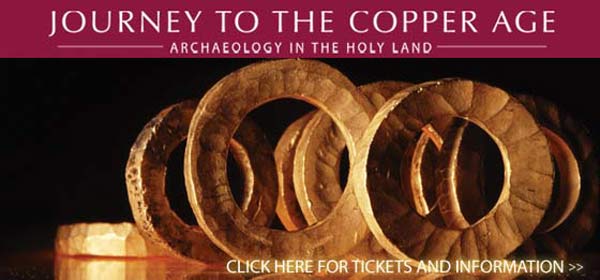

SAN DIEGO JEWISH WORLD
THE WEEK IN REVIEW
WEDNESDAY, NOVEMBER 14
Garry Fabian in Melbourne, Australia: Former Labor prime minister slams Liberals' pot shot about Israel .... Stark memories of Kristallnacht
Gaylene Fisch in Solana Beach, California: KLS: A rare syndrome affecting Ashkenazi families for which there is no known cure
Gerry Greber in Solana Beach, California: Baptist minister shares 35 years of Israeli memories with Women's Ort lunch group
Donald H. Harrison in San Diego: Strolling through the knotty questions of inter-religious and inter-Jewish relations
Sheila Orysiek in Costa Mesa, California: Tango's repetitive dance moves and lack of color in costuming can tire audiences
Dorothea Shefer-Vanson in Eilat, Israel: The quieter voices at Israel's playground
TUESDAY, NOVEMBER 13
Shoshana Bryen in Washington, D.C.: Army officer reflects on Veteran's Day about his assignment in the Iraq war
Mitchell Finkel in North Bethesda, Maryland: Why Abbas as peacemaker is unbelievable
Peter Garas in Gordon, Australia: Colonialism the culprit in Pakistan and elsewhere in unstable world
Donald H. Harrison in San Diego: Dreams Imagined by Freud Descendant
Michoel Stern in Monsey, New York: What about extending tolerance to the Orthodox members of your family?
Lynne Thrope in San Diego: Culinary stars gather for San Diego Bay Wine and Food Festival
MONDAY, NOVEMBER 12
Shoshana Bryen in Washington, D.C.: Pakistan has neither a racial nor philosophical identity to help unify it.
Natasha Josefowitz in La Jolla, California: We share our territorialism with the lower orders of animal life; can we transcend it?
Joe Naiman in Lakeside, California: Unusual Suspect gladdens a Jewish family
Sheila Orysiek in San Diego: Expanding our view of Veteran's Day
Ira Sharkansy in Jerusalem: 'Right of return' and 'undivided Jerusalem' jeopardize any bargain at Annapolis
SUNDAY, NOVEMBER 11
Sandy Golden in La Jolla, California: "Viorst has kept a generation laughing"
Donald H. Harrison in Encinitas, California: "Hall of History at Seacrest Village recalls the residents of 54th Street Hebrew Home"
Rabbi Baruch Lederman in San Diego: "Why Baruch keeps the kippah on his head"
Joel A. Moskowitz, MD and Arlene Moskowitz, JD in La Jolla, California: "U.S. standing in the world depends upon clear objectives—Dennis Ross"
Rabbi Leonard Rosenthal in San Diego: "Jacob and Esau:Nature over nurture"
Melanie Rubin in San Diego: "San Diego Grandpa and Israeli Native"
Larry Zeiger in San Diego:"Lars finds himself a girl in bizarre movie that will make you laugh—and also think"
Publishers tell changes in format and frequency for San Diego Jewish World
THURSDAY, NOVEMBER 8
Gary Acheatel in Ashland, Oregon: "Carter, Walt, Mearsheimer fail 3-D test in their assessments of Arab-Israeli conflict"
Carol Davis in Vista, California: 'Argentina proves a crackling refuge for European family in The Magic Fire'
Ira Sharkansky in Jerusalem: "U.S. policy-makers have a record of mistakes in U.S.; is Israel next?"
Photo Story: JFS relocates its senior center to Congregation Beth Israel
< BACK TO TOP
|
|

